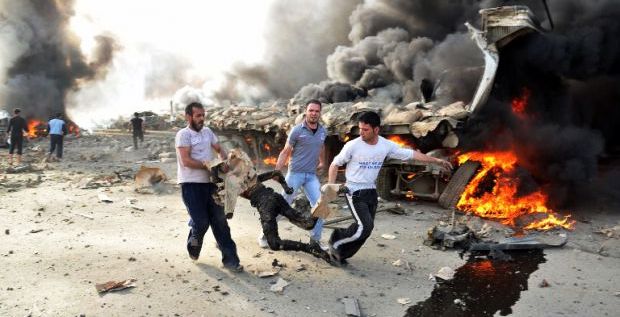
The Chaotic Reality of the Arab Spring
The assumption that the rising tide of the Islamist forces, on the Arab Street, is led by politically-pragmatic and moderate Islam, is divorced from reality.
The supposition that the surging Islamic forces, on the Arab Street, aim to eschew violence, moderate the Arab Street, focus on economic growth rather than the spread of Islam and engage the US strategically, sacrifices realism on the altar of wishful-thinking.
The presumption that the Arab Street is experiencing an “Arab Spring,” whereby democracy-seeking youth, independents and moderate Islamists collaborate in the effort to topple despotic regimes, has crashed against the rocks of Middle East chaotic reality.
In Iraq, in the aftermath of the US withdrawal, and irrespective of the US campaign of democratization, the al-Maliki regime is increasingly dominated by Iran, the fiercest enemy of the US. Baghdad has become the most critical channel of Iranian military supply to the Assad regime, and Iran’s Revolutionary Guard is gaining control over Iraq’s domestic affairs.
In Egypt, contrary to Western delusions, President Morsi is significantly influenced by the Muslim Brotherhood’s Supreme Guide, Mohammed Badie, and the Brotherhood’s first choice for President, Khairat el-Shater, the former Deputy Supreme Guide. Thus, Morsi’s proposed constitution would transform Egypt into an increasingly Sharia’ state. It would upgrade the authority of Muslim clerics over civil rights, provide for a Saudi-style “morality police,” impose 7th century punishments for adultery and theft, etc. Muslim Brotherhood thugs incite violence purposely, in order to bring the opposition to submission.
In Libya, Western hopes for an Arab Spring have been shattered by the murder of the US Ambassador and three State Department officials and by an unprecedented civil war. Following 42 years of Qaddafi’s dictatorship, Libyans are afflicted by tribal, ethnic, ideological and religious fragmentation, violence and terrorism. For instance, the Arabs of the town of Misrata slaughtered the black African residents of the neighboring town of Tawargha. The country has become an arena for daily battles among armed militias, terrorists and Islamists.
In Yemen, Al Qaeda suicide bombing has increased since the toppling of the 33 year regime of President Saleh, targeting military and government officials as well as tribal leaders and US-bound airliners. Al Qaeda of the Arabian Peninsula has leveraged Yemen’s intensified tribal warfare, benefiting from Yemen’s inherent instability and weak central government.
In Bahrain – home to the US 5th Fleet – the 22 month old uprising by Bahrain’s 70% Shiite majority, seeking to weaken the powers of the kingdom’s Sunni monarchy, is supported by Iran.
In Lebanon – which is severely impacted by Hezbollah terrorism and the Syrian civil war – “a former prime minister, a former deputy prime minister, the current deputy speaker of Parliament and the mufti of Tripoli are all out of the country for “security” reasons. The same goes for several Members of Parliament and a handful of former Cabinet ministers. Other prominent politicians are confined to their homes until further notice, also due to concerns for their physical safety.”
In Syria, more than 40,000 fatalities have been recorded in the war between the Iranian, Iraqi and Russian-supported Assad regime and the Saudi Arabia and Qatar-supported ethnic, religious and political opposition. Unprecedented destruction of entire towns and suburbs, aerial bombing of civilians, summary executions and deadly sniper fire have plagued the country since March, 2011.
The growing unrest in Algeria, Jordan and Kuwait, the simmering environment in the Persian Gulf, and the actual fragmentation and fragmentation-in-process in Sudan, Iraq, Yemen, Syria and Libya, suggest that more lava is expected to erupt from the seismic Arab Street.
The dramatic alteration of the Middle East reality – independent of the Palestinian issue and Israel’s policy – requires an equally dramatic reassessment of US Middle East policy.
The dramatic intensification of violence, unpredictability, instability, treachery and unreliability on the Arab Street – which highlight the tenuous nature of Middle East partners and agreements – requires a dramatic reassessment of Israel’s security requirements.
The exacerbated anti-US sentiments on the Arab Street, the US withdrawal from Iraq and the expected cuts in the US defense budget warrant enhancement of the mutually-beneficial US-Israel strategic cooperation.
By: Yoram Ettinger


